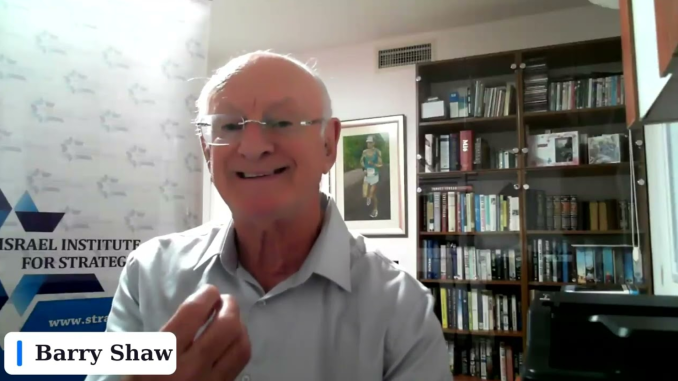Peloni: This is a very important video. Barry Shaw, the Senior Associate for Public Diplomacy at the Israel Institute for Strategic Studies, provides an important region wide masterclass analysis of the consequences of recent events in Syria.
Towards the end of the video, he discusses a proposal to use the Abraham Accords as a protectorate guiding the reconstruction of Gaza and perhaps under the management of Mohammed Dahlan. Shaw argues that the deradicalization of Gaza can not be completed by Israel, and that it must instead be conducted by the moderate Muslim states of UAE and Bahrain with the addition of Saudi Arabia, all of whom have chased Islamic radicalism from their own territories. I find this proposal to be deeply worrisome.
Martin Sherman addresses the concern regarding Dahlan’s possible role in this Day After scenario. Beyond Sherman’s comments, which I would argue are significantly material, I am additionally concerned about the consequence of outsourcing the deradicalization of Gaza to Israel’s AA partners to act on Israel’s behalf. Israel has responded to an attack from Iran’s proxies since October 7 without any diplomatic support of either the current members of the AA nor from the Saudis, all of whom have repeatedly employed their influence to confound Israel’s response to October 7. Indeed, it should be recalled that both Bahrain and UAE have issued multiple condemnations against Israel for its response to the Islamist savagery, with Bahrain also ceasing trade with Israel and recalling its ambassador. Recall further that, even before October 7, the UAE acted on behalf of the radical leadership within the PA as it has repeatedly condemned Israel, even soliciting a condemnation from the UNSC against Israel on behalf of the PA. Beyond this, since October 7, rather than supporting Israel in its defensive war against Iranian proxies, the UAE has consistently advocated for ceasefires and Israeli withdrawals from Gaza, leaving Hamas intact. The UAE has also condemned Israel’s recent ban on UNRWA, which seems relevant to the UAE’s potential role in any protectorate guiding reform in Gaza. While the AA provided an important basis upon which Israel might lead a coalition against Iran, and thereby extend its support within the region, it seems that this end, in and of itself, has yet to be fully embraced, even by the current signatories of the AA.
Hence, whatever influences might be constraining the AA members and SA from supporting Israel in its fight against Islamic radicalism, should caution us from believing that they should, would or could effectively act on Israel’s behalf in ridding Gaza of its radical leanings on the Day After, this, despite the fact that they did so while stabilizing their own regimes. What is more, should Israel place its interest in Gaza under the control or influence of any foreign/international body, it will beyond Israel’s control to influence what takes place on the Day After.
Leave a Reply
You must be logged in to post a comment.




Email received from Barry Shaw:
Barry Shaw is a very well-informed scholar of the contemporary Middle East and Middle Easat history. His analysis of the current situation in Syria and the political-religious objectives of al-Julani and HTS is spot on.
One minor caveat about Dr. Shaw’s presentation: I don’t object to these terrorist leaders changing their names. Many honorable Israeli politicians have done the same thing: David Grien became David Ben-Gurion, for example. Yitzhak Shamir Ariel Sharon and Moshe Sharett all changed their names, and many other Israeli generals and politicians, by Hebraizing their names. I don’t object to a terrorist changing his name, at least not when it is possible to track down his original name. What I object to about them is that they are terrorists who murder innocent people and wage aggressive wars with evil objectives such as “politicide” and “genocide,”